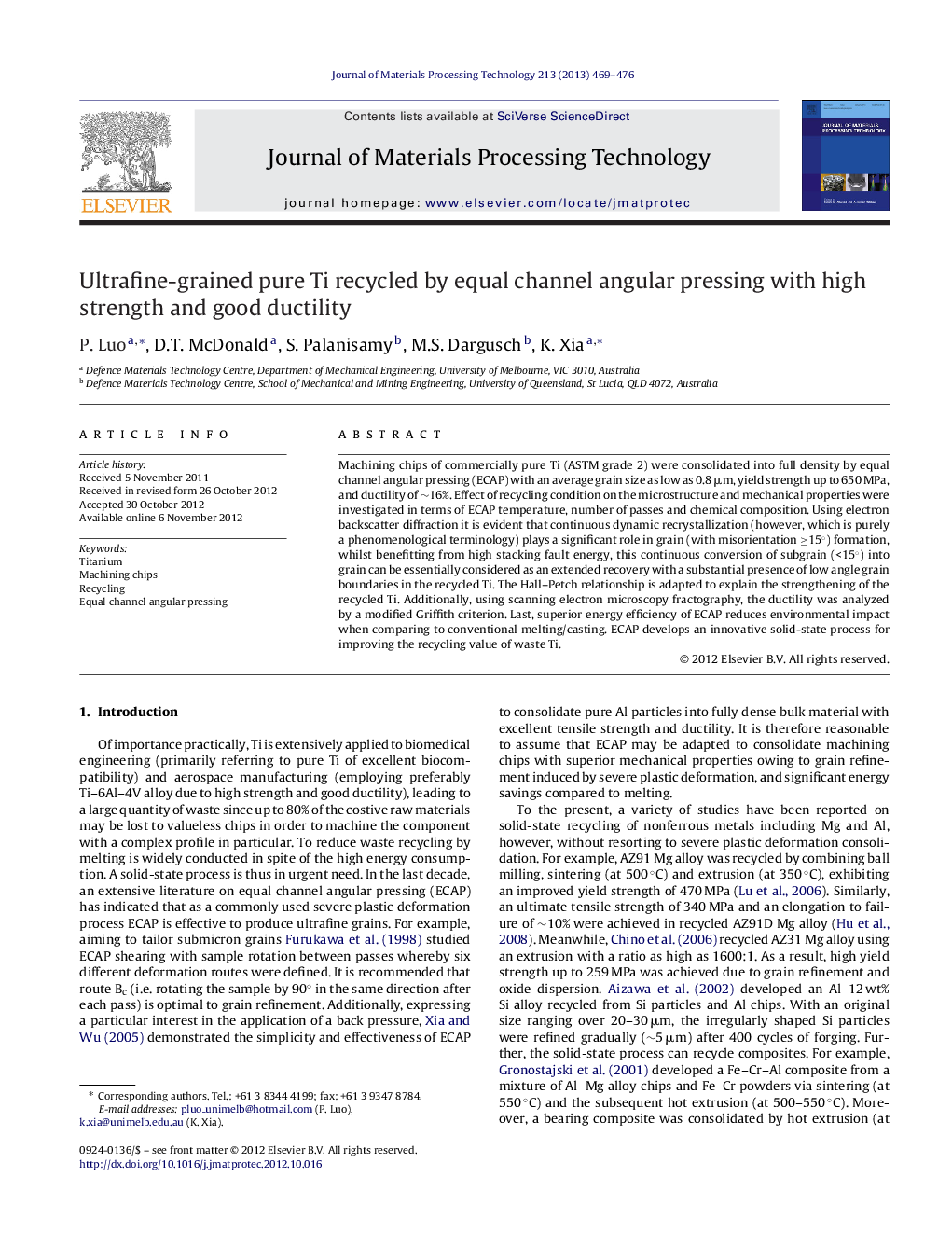| Article ID | Journal | Published Year | Pages | File Type |
|---|---|---|---|---|
| 798145 | Journal of Materials Processing Technology | 2013 | 8 Pages |
Machining chips of commercially pure Ti (ASTM grade 2) were consolidated into full density by equal channel angular pressing (ECAP) with an average grain size as low as 0.8 μm, yield strength up to 650 MPa, and ductility of ∼16%. Effect of recycling condition on the microstructure and mechanical properties were investigated in terms of ECAP temperature, number of passes and chemical composition. Using electron backscatter diffraction it is evident that continuous dynamic recrystallization (however, which is purely a phenomenological terminology) plays a significant role in grain (with misorientation ≥15°) formation, whilst benefitting from high stacking fault energy, this continuous conversion of subgrain (<15°) into grain can be essentially considered as an extended recovery with a substantial presence of low angle grain boundaries in the recycled Ti. The Hall–Petch relationship is adapted to explain the strengthening of the recycled Ti. Additionally, using scanning electron microscopy fractography, the ductility was analyzed by a modified Griffith criterion. Last, superior energy efficiency of ECAP reduces environmental impact when comparing to conventional melting/casting. ECAP develops an innovative solid-state process for improving the recycling value of waste Ti.
► Pure Ti machining chips were solid-state recycled using equal channel angular pressing. ► The microstructure of the recycled Ti can be as fine as 0.8 μm. ► In addition to high yield strength up to 650 MPa, the recycled Ti is ductile with an elongation to failure of 16%. ► The dependence of yield strength on grain structure obeys the Hall–Petch relationship. ► Equal channel angular pressing is a promising technique for recycling machining chips due to melting avoidance.
